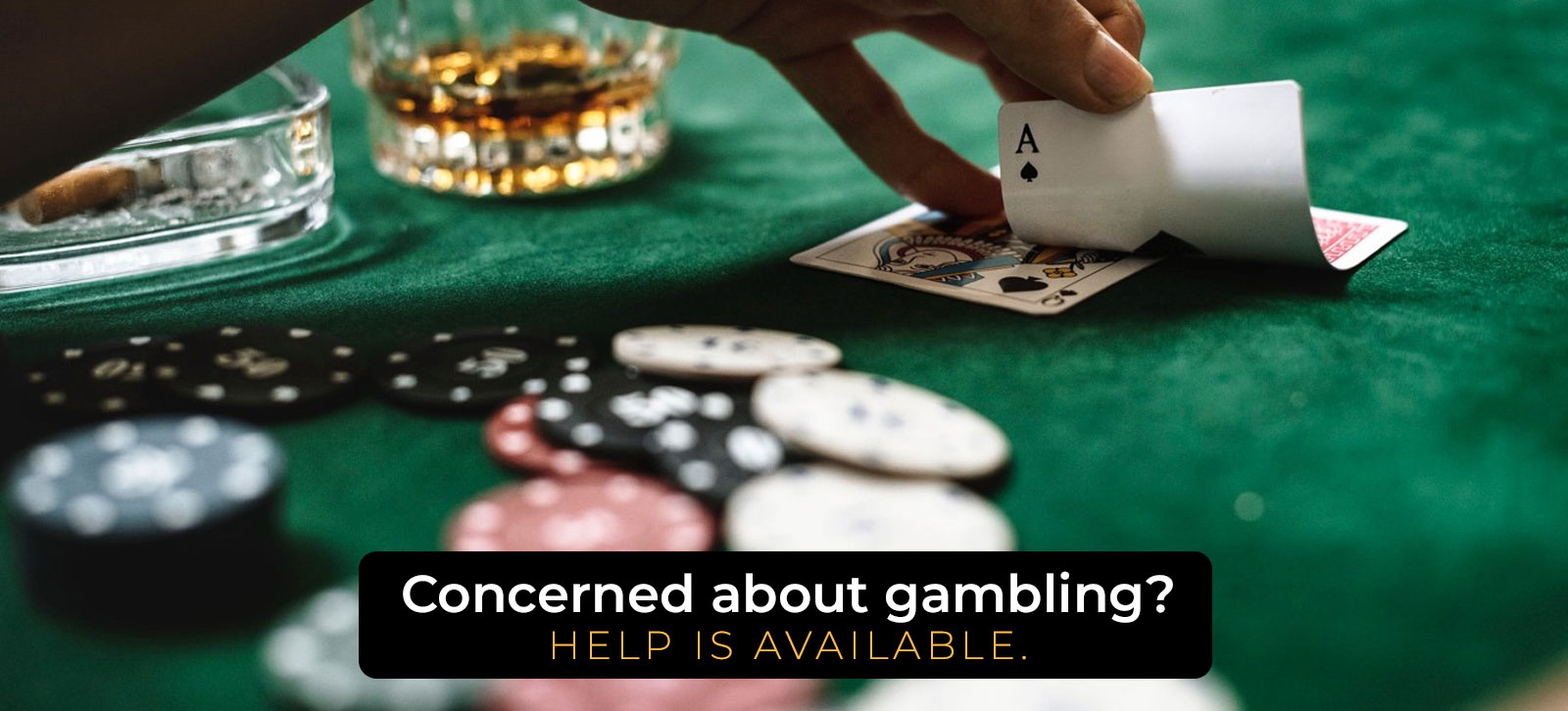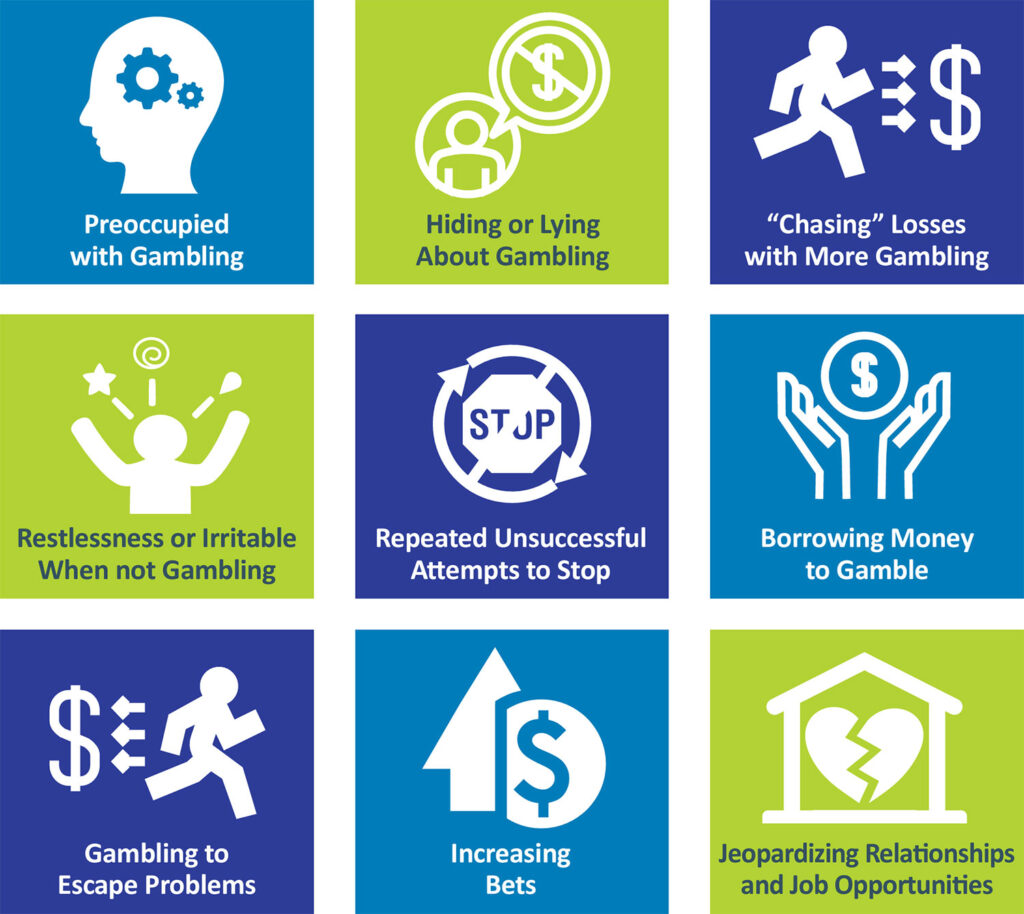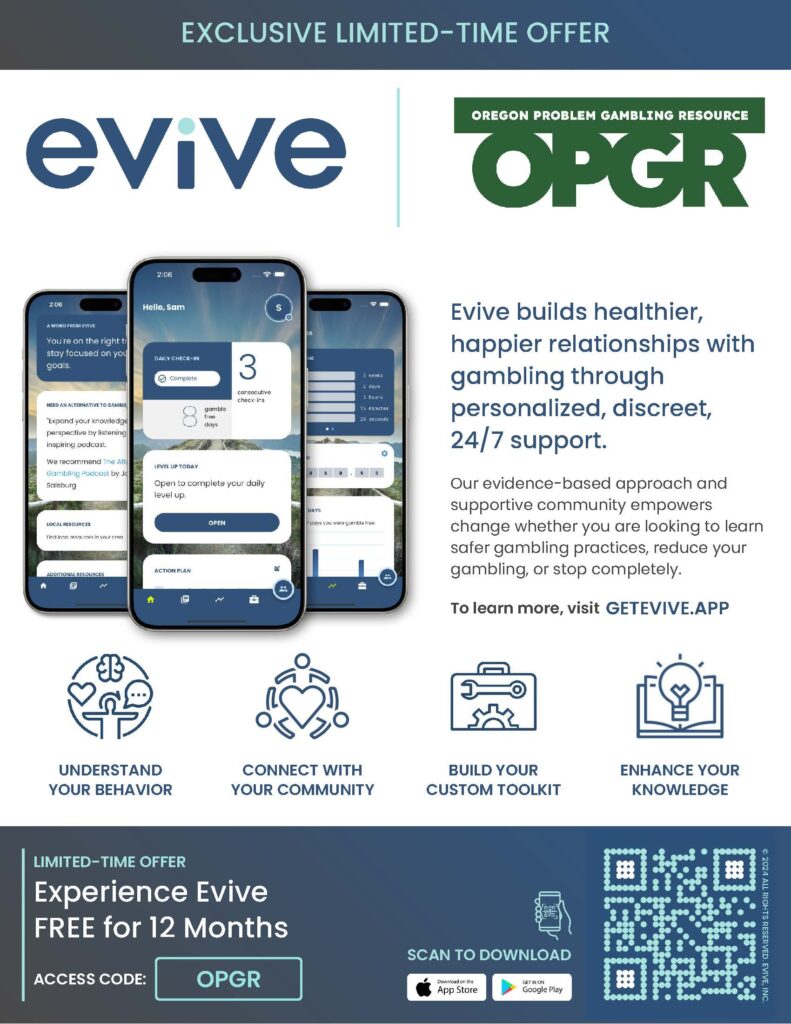Problem Gambling Prevention
Problem gambling prevention is all about helping people avoid the negative impacts of excessive gambling. We focus on spreading the word about signs to watch for and offering support to those who might be at risk. Our goal is to encourage responsible gaming habits and provide resources for anyone dealing with gambling-related issues. We believe that by talking openly and early about potential problems, we can make a positive impact and help individuals maintain a healthy relationship with gambling. If you or someone you know is dealing with gambling challenges, seeking help is a smart move towards a balanced and enjoyable lifestyle.
Concerned about gambling? Please visit www.opgr.org for more information on how to get help.
1-877-MY-LIMIT
Es: 1-844-TU-VALES

Gambling: Gambling is the wagering of money or something of material value on an event with an uncertain outcome with the hope of winning something of even greater value.
Problem Gambling: Problem gambling is any gambling, betting or wagering that causes family, financial, legal, emotional or other problems for the gambler, their family or others.
Problem gambling can have a negative effect on your life or
the lives of people close to you.
For example, if your gambling is causing you to fall behind in school, miss work, have arguments with family or friends, or
worry about money you have lost, you may be a “problem gambler.”
Anyone who gambles can develop a gambling problem.
Responsible Gambling: Responsible Gambling describes the ways in which games of chance are both offered and participated in a socially responsible way that lowers the risk of gambling harms.
– Oregon Council on Problem Gambling & Oregon Problem Gambling Resource

What can I do if I think someone has a gambling problem?
How do I start a conversation?
- First, choose a comfortable place where you feel safe and will not be interrupted.
What do I say?
- Keep it simple and straightforward.
- Tell the person you care about her and you are concerned about how she is acting.
- Tell the person exactly what he’s done that concerns you.
- Tell the person how her behavior is affecting other people – be specific
Set Expectations
- Be clear about what you expect from them: I want to talk to someone about your gambling
- and what they can expect from you: I won’t cover for you anymore.
- Oregon Problem Gambling Resource
Responsible Gambling: Dos and Don’ts
- Do keep track of your spending and gambling habits
- Don’t use gambling as a way to cope with other issues (emotional, financial, etc.)
- Do set a time and money limit—stick to it!
- Don’t borrow money or use credit cards to gamble
- Do use the money lost as your cost of entertainment
- Don’t expect to win or chase your losses
- Do find a balance and take part in other social/leisure activities
Additional Resources:
Visit OPGR.org for more info
